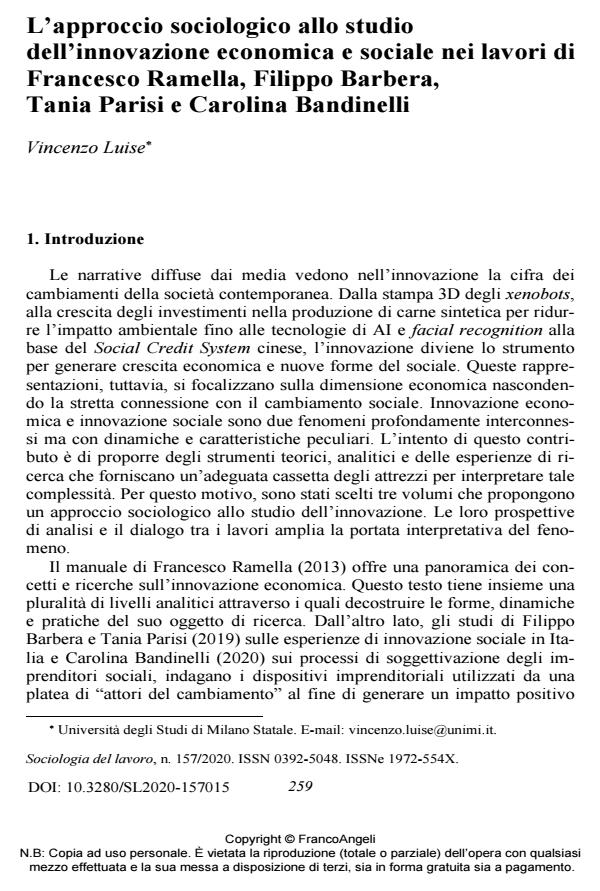L’approccio sociologico allo studio dell’innovazione economica e sociale nei lavori di Francesco Ramella, Filippo Barbera, Tania Parisi e Carolina Bandinelli
Titolo Rivista SOCIOLOGIA DEL LAVORO
Autori/Curatori Vincenzo Luise
Anno di pubblicazione 2020 Fascicolo 2020/157
Lingua Italiano Numero pagine 18 P. 259-276 Dimensione file 234 KB
DOI 10.3280/SL2020-157015
Il DOI è il codice a barre della proprietà intellettuale: per saperne di più
clicca qui
Qui sotto puoi vedere in anteprima la prima pagina di questo articolo.
Se questo articolo ti interessa, lo puoi acquistare (e scaricare in formato pdf) seguendo le facili indicazioni per acquistare il download credit. Acquista Download Credits per scaricare questo Articolo in formato PDF

FrancoAngeli è membro della Publishers International Linking Association, Inc (PILA), associazione indipendente e non profit per facilitare (attraverso i servizi tecnologici implementati da CrossRef.org) l’accesso degli studiosi ai contenuti digitali nelle pubblicazioni professionali e scientifiche.
Vincenzo Luise, L’approccio sociologico allo studio dell’innovazione economica e sociale nei lavori di Francesco Ramella, Filippo Barbera, Tania Parisi e Carolina Bandinelli in "SOCIOLOGIA DEL LAVORO " 157/2020, pp 259-276, DOI: 10.3280/SL2020-157015